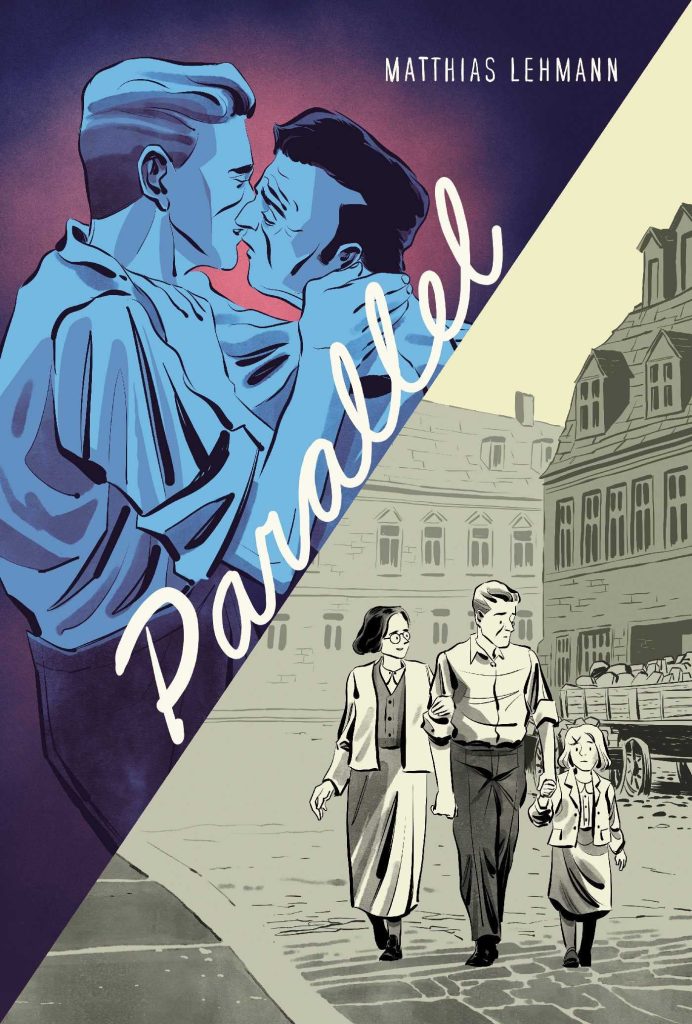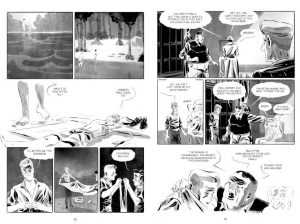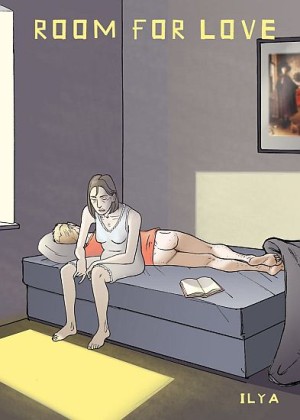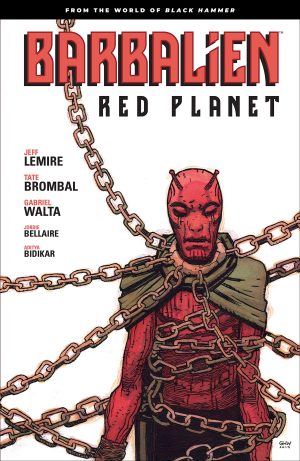Review by Frank Plowright
As Parallel opens Karl Kling is retiring from his factory job in Germany. We learn his daughter left eight years previously and he’s not heard from her since. Should he attempt to contact her? While mulling that over his mind wanders back to his past, picking up near the end of World War II and from there Matthias Lehmann slots present day interludes between a chronological progression to the 1980s retirement, contextualised in a letter Karl may or may not send.
The cover is an efficient summary of the content, contrasting later days when Karl can be himself as full colour with the black and white half life he endured for years, although there is no internal colour. Aware of his feelings during his wartime service, 1950s Germany is no place for a gay man to live a full life, so he pretends, following the course others have laid out for him, and marrying the daughter of a local factory owner who employs him.
Lehmann paints a painful picture of secrecy and repression, bringing home what it’s like to have to deny who you are in public. Karl is never a happy man, and in attempting to conform to what the society of the time expects he just spreads that unhappiness further. With one mistake uprooting his life he’s more circumspect, yet Lehmann is subtle in showing how life takes its course despite anyone’s best intentions, and Karl is soon trapped in roughly the same situation as before.
There’s a delicacy to Lehmann’s grey wash artwork, and a considerable thought applied to locations and weather, most only necessary in order to embed Karl somewhere as life rolls out around him. In the 1950s the wartime devastation is still apparent, and there’s a strength to the way people are posed, which tells us as much about them as their expressions. At times it can be difficult to distinguish one character from another, but this only really applies to those with small roles, and the elderly Karl resembles someone from a Will Eisner story.
Although he encounters prejudice and sometimes worse, those surrounding Karl on a regular basis are sympathetic and likeable. Adam, a friend in his later years is an understanding man who doesn’t really understand, so suggests Karl should meet women, and there’s initially a similar lack of understanding in Liselotte who doesn’t really see beyond her own desire to escape. The dawning of the truth in her is protracted, heartbreaking and eventually shocking. For much of Parallel Karl’s daughter Hella is abstracted, although the reason for her departure doesn’t need to be stated, and the connecting thread throughout is Karl’s hope he can reconcile with her.
At almost 450 story pages Lehmann might have saved himself some work by contracting some scenes, and omitting others altogether. While he creates a melancholy mood there’s also repetition. However, the bigger picture is of Parallel being sensitive, poignant, moving and tragic in depicting how life was for so many people in the mid-20th century.





